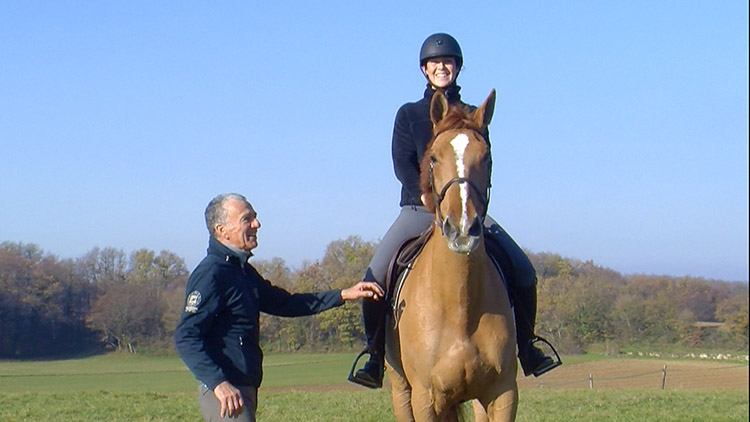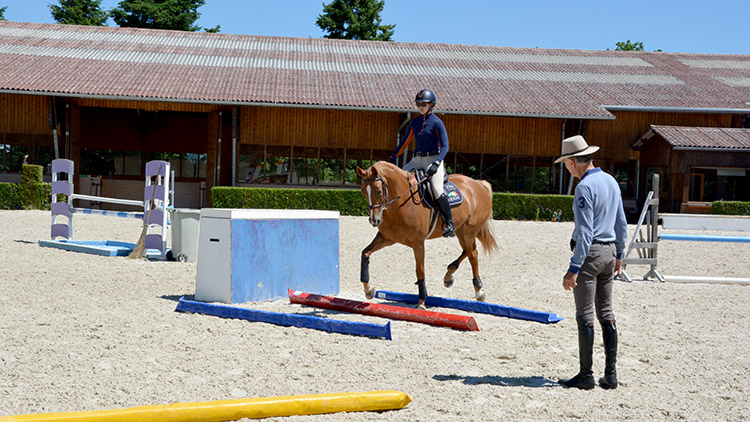You are here
Respect the obvious rules for making progress


I always take a little time for a preliminary briefing with the pupils I coach, a time crucial for understanding the state of mind in which we will be working: “Today we shall change the language we use. I ask you to trust me 100% because I am 100% certain of my method. There are no doubt other routes for achieving the same results, but this is a method I have experimented on myself, on my horses and on all my riders. There must be absolute trust between us. I am not like those doctors who ask you to stop smoking while they themselves smoke like chimneys. I am asking you to be as honest as you can with yourselves, with your horses and with me. This is because I will be honest with you. What about the horses? …Don’t worry, they can’t lie.”
This trust turns into real complicity between the pupils and me. From the opposite end of the arena a small gesture from me is enough for them to get the message.
The first rule to establishing 100% trust is to respect the obvious rules for making progress.
Everyone wishes to improve, but progress must be real; it is true that for each new exercise there must be a learning stage. Succeeding at the first attempt is extremely rare. However, each attempt must be addressed to successful progression.
If the rider encounters a problem, it is better to return to the previous stage: to repeat the exercise at a slower gait, to lower the jumps or the degree of difficulty. Before jumping a 4-metre water jump, a horse must be capable of jumping a small blue tarpaulin a metre wide.
It is up to the rider or the instructor to notice improvements. There is a sound logical basis for all this, logic that will no doubt clash with that of riders in too much of a hurry.
If one is incapable of performing an exercise at the walk, it is hardly worth trying at a canter. The same applies to jumping: it is pointless to set up a jump measuring 1.20 metres if one has a problem with a pole on the ground.
Teaching riding all too often generates incoherent or illogical behaviour, the source of many mistakes and a great deal of frustration.
In a commercial context, all instructors, at one stage or another, are tempted to do things in record time. But, that’s cheating and unfortunately, at the end of the day, nobody gains from it.
Personally, I prefer to rely on successful experiences. To do this it is necessary to return to basics. If the rider masters the exercises, the context is favourable to progression. It then becomes possible to rely on the strong points to allow the weaker ones to improve, whether the horse’s or the rider’s.
It is through the multiplication of positive experiences that one makes progress. If an exercise is badly performed, return once again to the previous stage. Always assess the level of the horse and rider before going to the next level. This rigorousness is fundamental. There is no room for compromise. You will soon notice if a rider tries to cheat, he will find excuses: «Yes but… my horse this and my horse that...».
A while ago, I was training a young international rider. I am sure she expected to ride over large jumps. For a week, we never jumped anything over 50 centimetres. Why? Because when she arrived, I under-stood she was frightened. She always looked towards the ground.
Together we returned to basics.
We worked with the aim of never looking down. This was the deal we had agreed upon. She was not to cheat. It was difficult because she had had this bad habit for a long time. At the end of her stay, she was transformed: her body was once again upright, she had regained her self-confidence and was ready to move on to the next stage.
Extract of the book "Secrets and method of a great champion"













